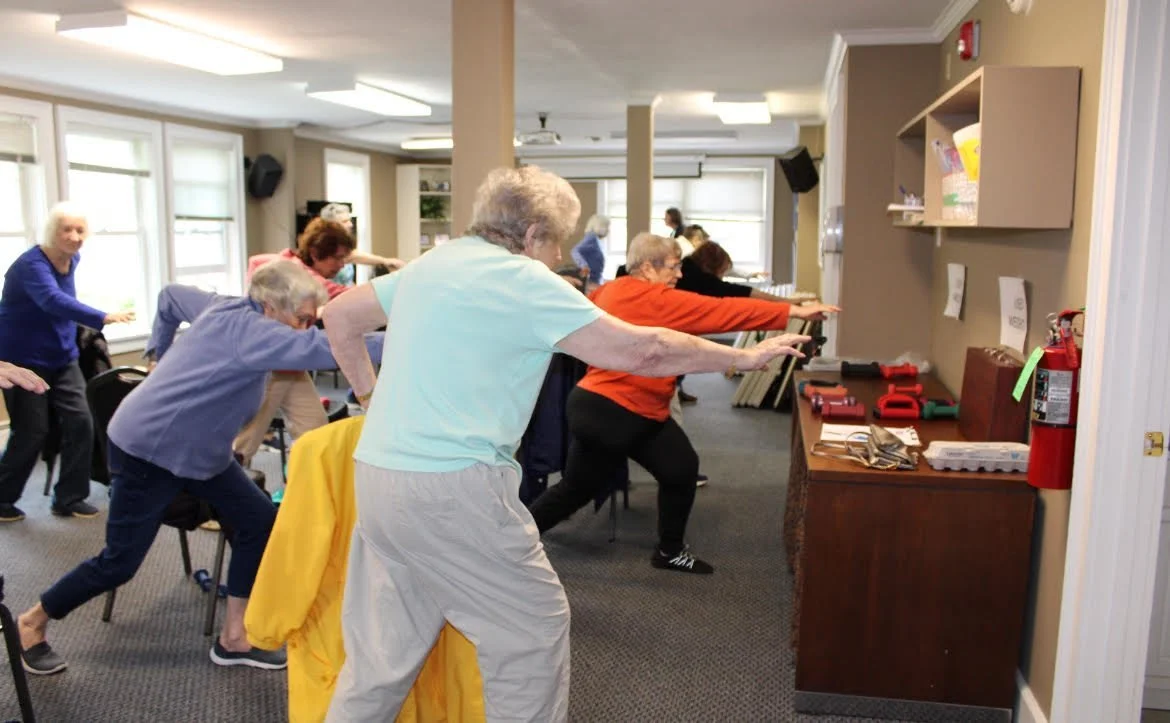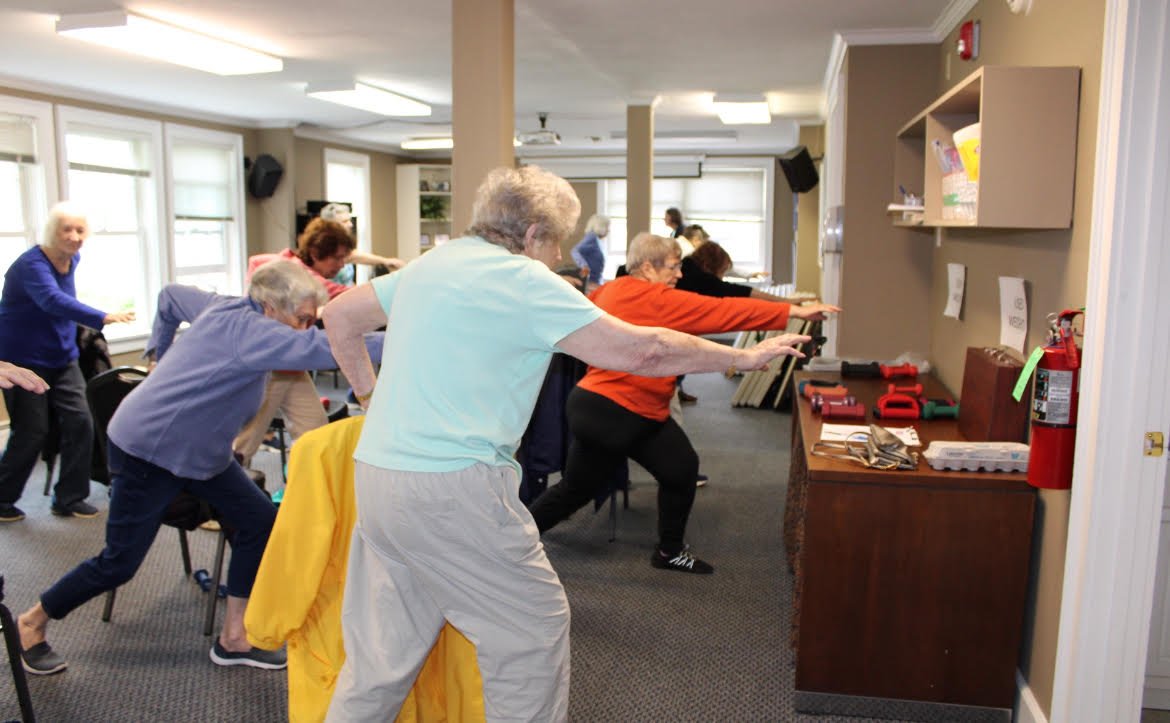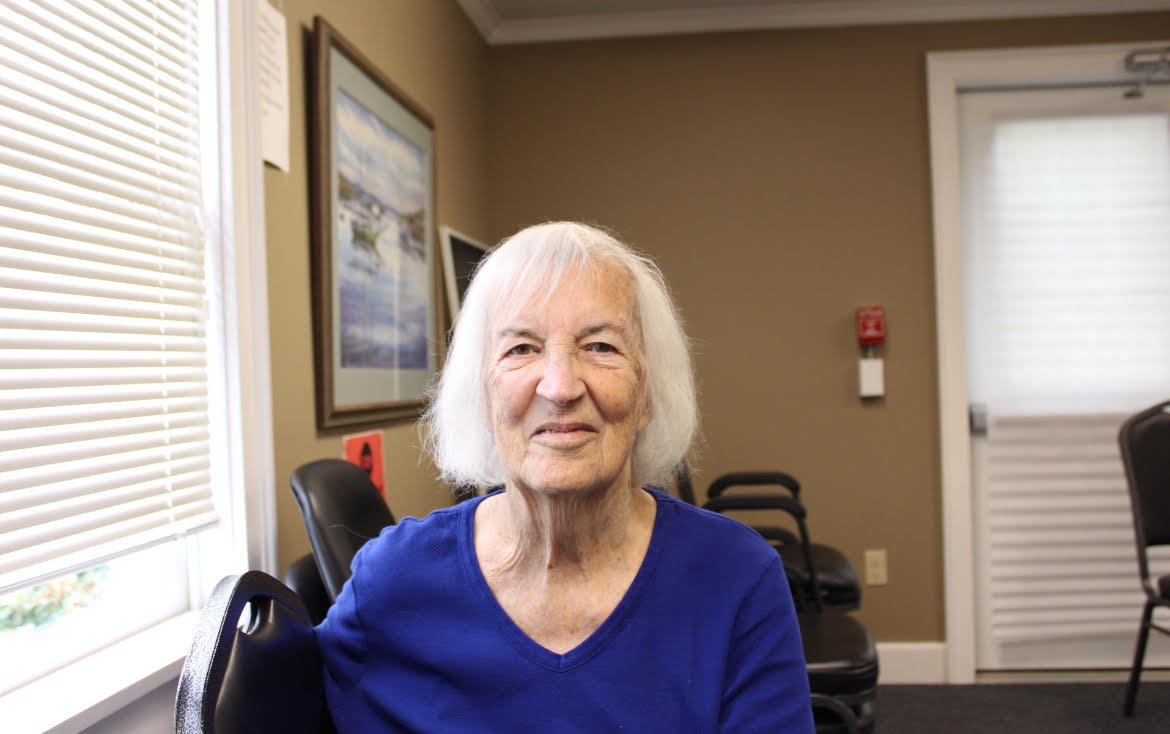Civic Health Index shows some social effects of pandemic linger among Granite Staters
Editor’s Note: This article is part of an ongoing series taking a deeper look at the Civic Health Index and what it means for Granite Staters.
By Sarah Donovan-Granite State News Collaborative
During the height of the COVID-19 pandemic, federal and state guidelines essentially left most of us quarantining at home. We were told not to gather with friends and family in order to mitigate the spread of the virus, not to hold gatherings with people who weren’t in your immediate household, and to maintain social distance and limit social interaction overall. And then there were the masks.
All of which raises a question: Did those limits on social interactions have a long-term effect on people and how we relate to one another?
In 2020, the U.S. Census Bureau partnered with the National Center for Health Statistics to conduct the Household Pulse Survey, to collect information on relevant issues that have affected American households.
In New Hampshire, 36.9% of adults reported never or rarely receiving the social or emotional support they needed, the survey found through data collected from June 25 to July 22, 2024. The survey also found that 43.8% of adults in the Granite State usually or always feel lonely. The Household Pulse Survey found that, nationally, an average of 40% of adults reported feelings of being lonely usually or always.
The sense of isolation and loneliness is echoed in the findings of the University of New Hampshire Carsey School of Public Policy 2024 Civic Health Index. Using Census data, the report found that between 2019 and 2022 — from before the pandemic to two years into it — time spent with friends and family dropped by 5%, people who did frequent favors for neighbors dropped by half, working with neighbors to do something positive for the community dropped by 6% and there were fewer people attending public meetings in 2021 than in 2019. It also found that 20% of New Hampshire residents said they don’t feel emotionally connected to where they live.
The sense of isolation and loneliness existed before COVID — some 43% of respondents in a 2020 study, conducted during the first year of the pandemic, said they felt more lonely and isolated amid COVID — but it’s likely that the pandemic only made the situation worse, and it has not seemed to have abated. And numerous studies have found that loneliness and social isolation can lead to a wide range of mental and physical health concerns, including heart disease, cognitive decline, depression, suicidality and self-harm.
Effects on children
People of all ages were affected.
A 2023 survey of children found an increase in the percentage of children with developmental delays since the pandemic, along with learning disabilities and behavioral issues, especially kids who may have already had an underlying risk.
Participants in the Meals on Wheels of Hillsborough County’s Dine Out Club gather for a meal at one of the program’s participating restaurants. (Courtesy Emily Roberts, Meals on Wheels of Hillsborough County)
Further, a study published by the Adolescent Brain Cognitive Development found that of 11,633 children aged 9-11 years, higher screen time was associated with higher odds of reporting suicidal behaviors in follow-up. In October 2021, the American Academy of Pediatrics, the American Academy of Child and Adolescent Psychiatry, and the Children’s Hospital Association declared a national emergency when it comes to the mental health of children.
Amid concerns about the mental health and well-being of children during the pandemic, the Boys & Girls Club of Manchester pivoted its programs to fully remote on March 17, 2020, when Gov. Chris Sununu began issuing a series of stay-at-home and other COVID-related orders as the virus took hold in New Hampshire.
From serving 608 children at the start of March 2020 to closing its doors later that month to reopening in mid-May 2020 and serving 210 kids by June 2020, the club took many measures to ensure that community, meals and teaching services were not lost.
At the start of the pandemic, said Diane Fitzpatrick, chief executive officer of the organization, the thought was, “How are we going to take care of our kids?”
She said her staff members really stepped up and followed COVID-19 guidelines. When they operated virtually, it was mostly for tutoring help, as many of the kids had never experienced online learning and needed extra one-on-one attention to help them successfully complete their coursework.
During the pandemic, the staff checked in with their members regularly, completing 300 virtual wellness checks throughout the pandemic. They also implemented a grab-and-go meal distribution service, so members and their caretakers could pick up meals.
In mid-May of 2020, the Boys & Girls Club was able to reopen as an emergency child care program that served 30 children.
In the fall of 2020, the Manchester School District began the school year with a combination of remote and hybrid learning.The Boys & Girls Club launched a COVID Care remote learning program at its Union Street Clubhouse that served 130 children from kindergarten to fifth grade. The program enabled the kids to do their remote learning with staff support, providing child care so parents could work.
Fitzpatrick said it was an essential program, as most parents had to work and needed reliable child care, even with pandemic restrictions.
“We did this because this is what our community needed,” said Fitzpatrick. “In times of stress, we come together statewide. People came together to support the kids.”
Older adults
Social isolation has become a pressing concern among older adults — especially in New Hampshire, where 18.7% of residents are age 65 and older, compared to the national average of 16.5%. To address concerns, many nonprofit and social service agencies across the state have implemented community action plans to mitigate and combat social isolation in older adults.
Meals on Wheels of Hillsborough County, which provides nutritious meals and wellness checks free of charge to older homebound and disabled adults, has been taking steps since the pandemic to decrease social isolation.
Jon Eriquezzo, president of Meals on Wheels of Hillsborough County, said an alarming trend sprang up during and after the pandemic, one that prompted Eriquezzo and his team to switch gears.
“Before the pandemic, we would consistently ask the question, ‘Do you get any other visitors during the week besides your Meals on Wheels driver?’ And the response has always been consistent. Around 20% would say we’re the only visitor they get. And in about 2021, we polled again, and it shot up to 60%. Now that was very alarming,” said Eriquezzo.
One way Meals on Wheels is working to decrease social isolation is through a congregate dining program, which is supported under the federal Older Americans Act. Eriquezzo said he was inspired by a similar program in Connecticut, where Meals on Wheels partnered with a local restaurant to support a program that enables adults over age 60 to eat out free of charge through a restaurant voucher program.
Using the Connecticut program as a model, Eriquezzo created the Dine Out Club, which provides clients age 60 or older with a club card that can be presented at select restaurants for up to eight meals per registered member per month. The cost is minimal — a $4 donation per meal, although no one who is eligible to participate will be turned down for membership due to inability to contribute.
New Hampshire didn’t have any rules or regulations for a restaurant voucher program, Eriquezzo said, so his organization had to persuade the state that the program was a good initiative to move forward with. It received a $50,000 grant from Meals on Wheels America, and started a pilot program.
“It’s been incredible to see the transformation of not only the people and their experiences, but all the restaurants,” said Eriquezzo.
The Dine Out Club is offered at The Village Eatery in Merrimack, the White Birch Eatery in Goffstown and Francoeur’s Cafe in Manchester.
Eriquezzo said response to the program has been incredible, and he’s seen many success stories emerge from it.
“There was one gentleman who moved up from Florida who didn’t know anybody, and he happened to be at this restaurant when we were pitching the voucher program. He signed up, and suddenly he started attending, and he started getting friends. Now he has a regular table,” said Eriquezzo.
Eriquezzo added: “This has been a mass effect of helping people to the point where our program used to serve 2,000 people a year, consistently; we’re up to 5,000 people in just two years. I think we calculated that as a 117% increase in people we’ve helped.”
Eriquezzo added: “I think it’s true to say that we have shifted our focus on social isolation and loneliness. We have not given up on our mission to do home-delivered meals — 88% of our food deliveries are through home-delivered meals. But we are really moved to do this. We have to do this. This is an imperative that we reduce social isolation, [and] loneliness, and frankly, this is the best way to do it that we’ve ever seen.”
Members of the Chapin Senior Center in New London performing dynamic stretches and strengthening poses during a chair exercise class. (Photo by Sarah Donovan)
Farther north, in Carroll County — the county with the oldest median age in the state — Granite United Way also identified social isolation as a pressing concern after the pandemic. To combat it, the organization is addressing civic determinants of health through community outreach and social service partnerships.
The Carroll County Coalition of Public Health (C3PH), originally started in 2013 by the New Hampshire Regional Public Health Networks, began as a small nonprofit, then partnered with Granite United Way in 2015 to promote safe and healthy living and deliver essential health services.
C3PH has six key public health priorities that address residents across the lifespan. One is “aging with connection and purpose.”
“We know that we have to make our communities livable and be a place where older adults can thrive, get the services they need, and be a place that they can age in place,” said Caleb Gilbert, senior director of public health for Granite United Way and Public Health Advisory Council coordinator for C3PH.
Gilbert said that, at the time of the pandemic, staff members really began to think about social isolation, as they always knew it was an issue.
“I think because we are a rural county and people are spread out, it’s challenging to get to those community centers, or places where older adults gather, or not even older adults gather,” said Gilbert.
Older adults are more vulnerable to COVID, so during the pandemic, many community programs had to be temporarily shut down, such as the congregate dining program at the Gibson Center for Senior Services in North Conway.
To adapt to the restrictions of the pandemic and address social determinants of health, Granite United Way partnered with the Gibson Center to create a 12- town Mount Washington AARP Age-Friendly Community, which focuses on community livability, following World Health Organization guidelines. Some of the areas in the spotlight are housing, health, community and transportation.
Community connections were vital during the pandemic, Gilbert said, and the organizations relied a lot on the home meal delivery services of Meals on Wheels New Hampshire and regularly checked in on members via email and kept them updated through community bulletins.
Once pandemic restrictions eased, Gilbert said that Granite United Way’s partnership with the Gibson Center focused on Mount Washington Valley Age-Friendly Community programs to provide activities and transportation.
“There’s more and more people looking for the kinds of services that we offer, but also just people looking for community.” said David Smolen, executive director of the center. “For a lot of the people who come, maybe we have people who visit here every day, you know, and it’s really a core part of their life, which we’re really proud of.”
Transportation, meals, personalized Medicare counseling, computer tablet access and community activities are among other services used to promote the well-being of older adults hosted at the Gibson Center, he said.
#Westaytogether
In the New London area, the Council on Aging’s Chapin Senior Center also was closed at the start of the pandemic but it found ways to help and support them.
Similar to the Gibson Center, the Chapin Center started a program called #Westaytogether, reaching out to members to check how they were doing.
“What could we do to help? Did they have food? Did they have medication? Because a lot of the people we serve here we have on our transportation [services]. People who don’t have vehicles can’t get to places unless we transport them,” said Executive Director Kelley Keith.
After the center reopened, Keith said people were very happy to be in-person once again to get that community connection they didn’t have during the pandemic.
“I think to combat social isolation, or to have some sort of normalcy through a very unprecedented time, was coming here and keeping these programs going, keeping the transportation going to get them to doctor’s appointments, to keep them healthy. We had to keep moving,” said Keith.
Keith said participation rates at the center are back to pre-COVID levels, and the Chapin Center has been increasing in-person programs trying to get more people to come in person, such as introducing new activities like exercise classes.
Fran Wilson of New London, has been a Chapin Senior Center member for 10 years. ‘It's good to get out and socialize,’ she said. (Photo by Sarah Donovan)
At a recent chair exercise class at the center, the room was packed with 22 people, mainly women, who filled the room with positive, upbeat energy.
Rosalie Sainsbury has been attending the Chapin Senior Center for 20 years. She said that during the height of the pandemic, she stopped attending classes, but in 2022 she returned with a mask. She said she finds the center really beneficial, specifically the exercise classes.
Fran Wilson has been going to the center for about 10 years. She said she continued to attend the classes that were being offered even through the pandemic, as she said she is a nurse and wasn’t too worried about the virus as long as she was taking necessary precautions, such as wearing a mask and social distancing.
“It’s good to get out and socialize,” she said.
These articles are being shared by partners in the Granite State News Collaborative. For more information, visit collaborativenh.org.



